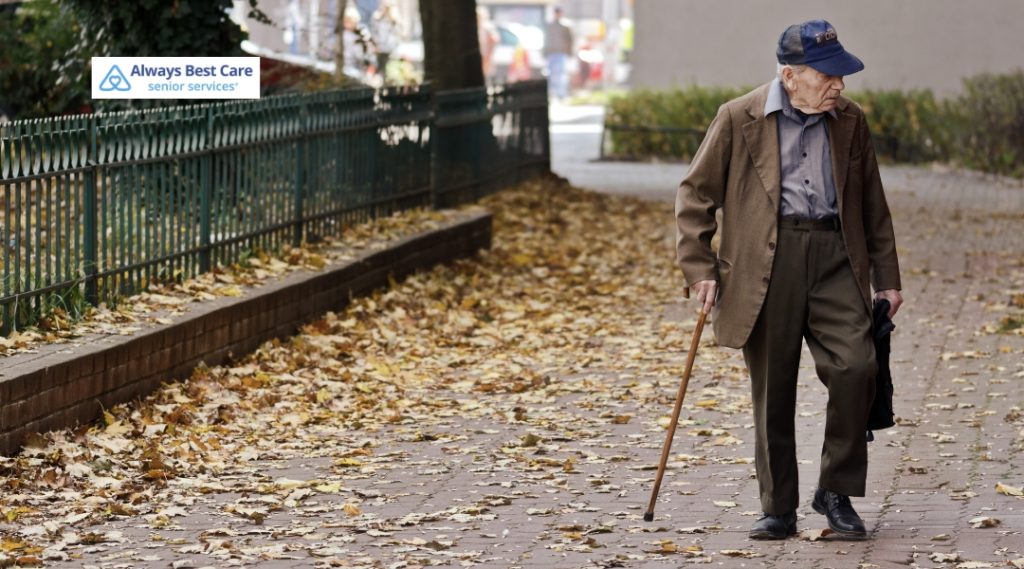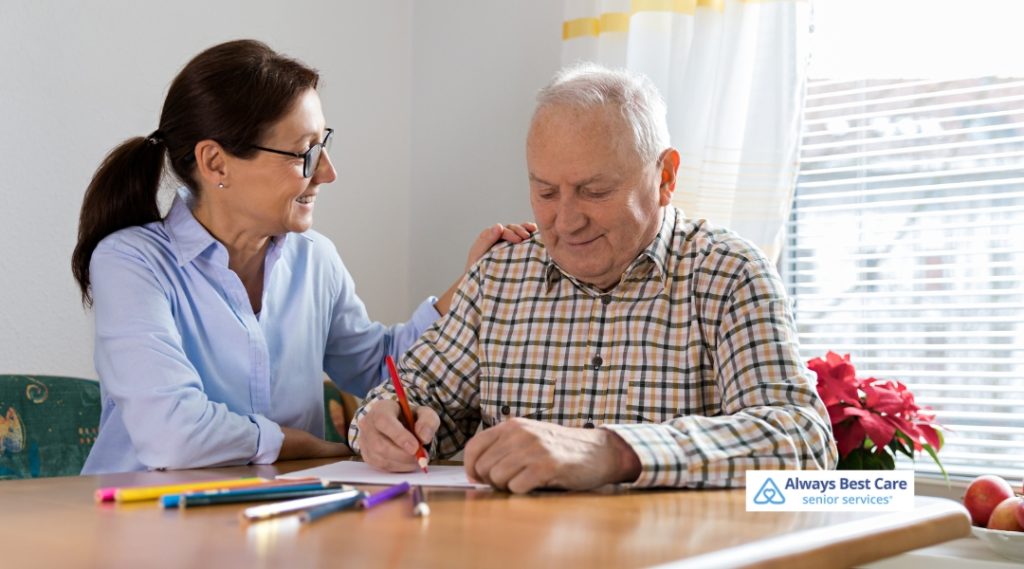Keeping Charleston’s Seniors Safe: A Compassionate Guide to Dementia and Wandering

Ever had that gut-wrenching moment when you realized a loved one with dementia wasn’t where they were supposed to be?
For many families around Charleston, SC, wandering is more than just a scary word; it’s a daily worry.
Here at Always Best Care of Charleston, we know how unsettling it can feel when someone dear slips out the door without warning.
Let’s shine some light on why this happens and what we can all do together to keep our seniors safe while giving everyone some much-needed peace of mind.
What you will learn:
- Why seniors with dementia may wander and the common triggers behind this behavior.
- How to recognize early warning signs that a loved one might be at risk of wandering.
- Practical, compassionate strategies for preventing wandering and keeping seniors safe at home and in the community.
- When to consider memory care options in Charleston, and how these communities can provide specialized support and peace of mind.
Table of Contents
Why Do Folks with Dementia Wander?
Wandering isn’t simply about getting lost; it’s tangled up with confusion, anxiety, old routines that won’t let go or sometimes just plain boredom.
Many seniors living with Alzheimer’s or other forms of dementia don’t realize the risk; their minds are searching for something familiar or chasing memories from another time.
Here’s what can trigger wandering:
- Looking for someone or something they believe is missing.
- Trying to stick with an old habit (like going “to work”).
- Restlessness caused by overstimulation or not enough activity.
- Feeling disoriented about where or even when they are.
- Boredom mixed with loneliness.
It’s tough because most don’t even notice they’ve wandered off, so staying ahead of the curve is key.

Spotting the Warning Signs: Is Wandering on the Horizon?
While not everyone facing memory loss will wander away from home (thank goodness), there are plenty of red flags families should keep their eyes peeled for:
- Repeatedly trying to leave home or asking if it’s time “to go.”
- Talking about needing to be somewhere else (“I need to pick up my kids”).
- Getting anxious in busy places.
- Not recognizing familiar surroundings, even their own living room!
- Pacing near doors and exits like they’re waiting for a bus.
If these behaviors sound familiar around your house lately, it might be time for an honest conversation and maybe some new safety steps.
Keeping Seniors Safe: 6 Tips That Actually Work
Nobody likes feeling like they’re trapping someone inside, but keeping seniors safe doesn’t have to feel that way! Here are tried-and-tested ways we help families across Charleston manage wandering risks while still respecting dignity:
Secure That Environment
Let’s talk simple fixes:
- Door alarms and motion sensors so you know when doors open unexpectedly.
- Locks placed out of sight (higher or lower than eye level).
- Pressure mats by main exits that’ll alert you if stepped on.
- GPS tracking devices tucked discreetly into shoes or pockets for peace of mind.

Stick to Routines Like Glue
Predictable days help calm nerves:
- Scheduled meals and activities reduce restlessness.
- Mix up mental stimulation (puzzles! music!) with gentle exercise.
Dodge Those Triggers
Busy environments crank up confusion fast. So:
- Keep things calm at home; avoid noisy crowds when possible.
- Make rooms bright but soothing with clear visual cues.
Meet Emotional Needs Head-On
Loneliness breeds wanderlust! Try:
- Companionship through visits from friends/family, or trusted caregivers.
- Activities tailored around hobbies they’ve always enjoyed.
Label Everything!
Confusion over rooms leads straight out the door sometimes. Fix it by:
- Posting big, bold labels (“Bathroom,” “Kitchen”) everywhere is needed.
- Using color-coded arrows as guides between spaces.

Loop In Neighbors and Friends
Trust us: Having allies nearby helps!
- Let neighbors know what’s going on so they’ll spot anything unusual right away.
- Keep recent photos handy, in case anyone needs them quickly.
When Home Isn’t Enough: Considering Memory Care In Charleston
Sometimes, no matter how hard everyone tries at home, safety concerns start piling up higher than anyone bargained for. Memory care communities become game-changers here, not because folks lose independence but because they gain security wrapped in compassion.
Memory care features include:
- Around-the-clock trained supervision.
- Carefully controlled entrances/exits; no more slip-outs.
- Activities built specifically around maintaining memory skills.
- Personalized plans so each resident feels known, not just cared for.
- Lots of social engagement daily.
FAQ About Senior Wandering & Safety
Q: What makes someone suddenly start wandering after years without issues?
A: Progression in dementia often changes judgment and orientation overnight—it catches many off guard!
Q: Are GPS trackers really helpful?
A: Yes, they provide real-time location updates without being intrusive.
Q: How do I convince my loved one that extra precautions aren’t punishment?
A: Frame changes as ways everyone stays connected—not restricted—for everyone’s sake.
Q: Is moving into memory care admitting failure as a family caregiver?
A: Not at all! It’s making sure your loved one gets specialized attention whenever needed most, while you get breathing room, too!

We’re By Your Side Every Step of the Way
Finding yourself worried sick every time Dad heads toward the front porch isn’t fair to him or you.
At Always Best Care of Charleston, we’re here shoulder-to-shoulder through whatever comes next, from helping set up safeguards at home right now to finding top-notch local memory care communities later down the road if that’s ever necessary.
Contact Always Best Care of Charleston at (843) 996-4498 to learn more and schedule your free consultation.





